#British railways
Text


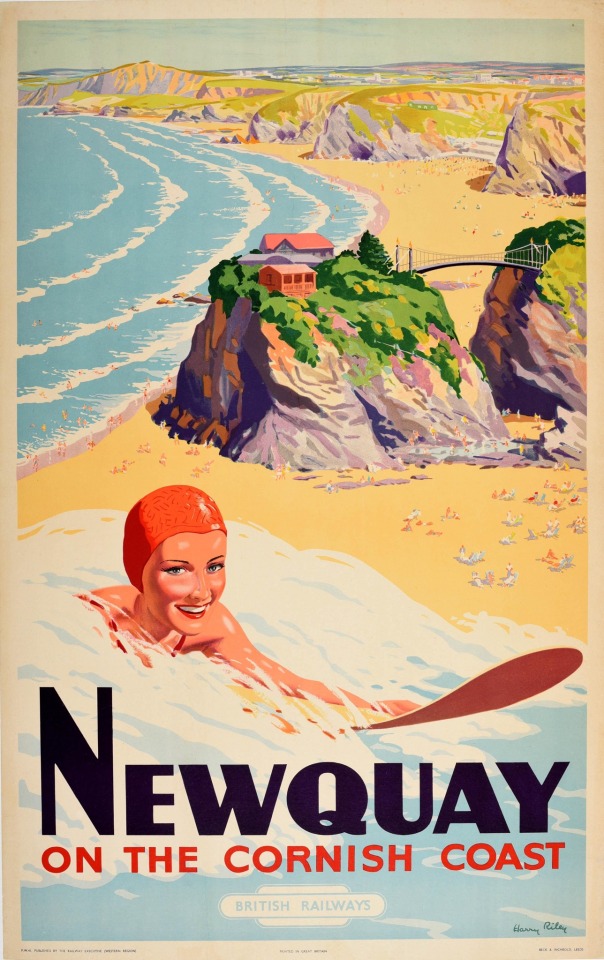
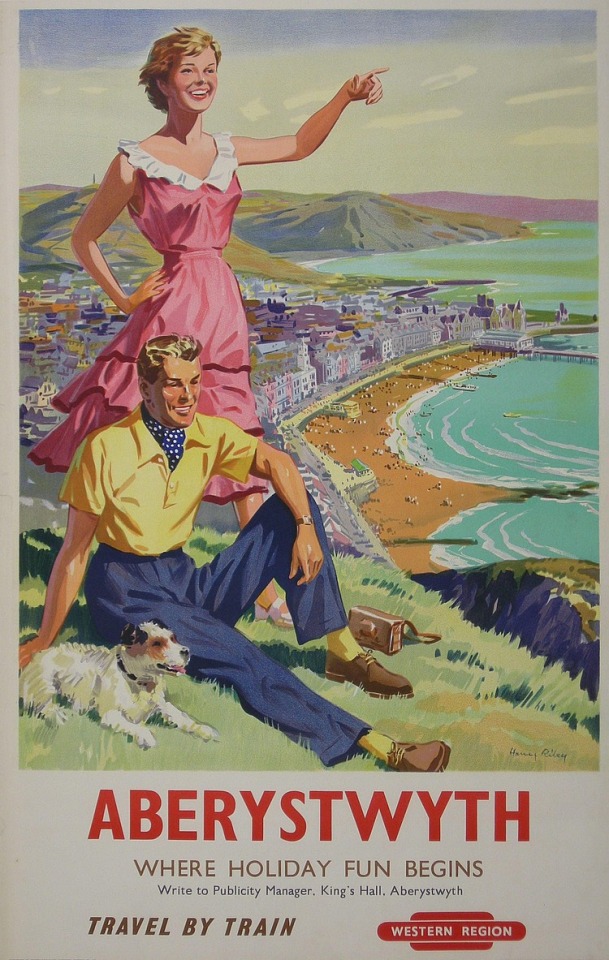


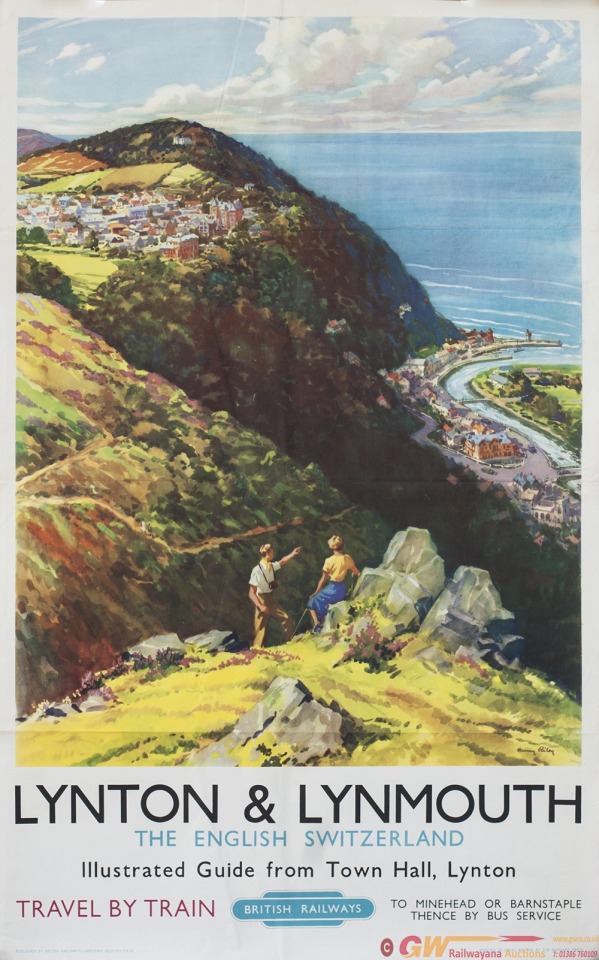

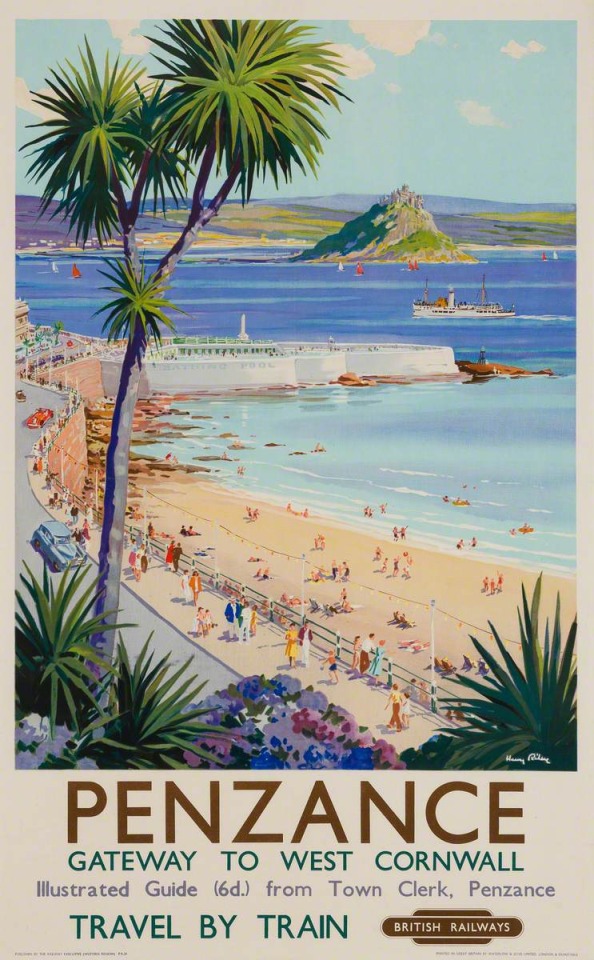

Harry Riley (1895-1966)
382 notes
·
View notes
Text
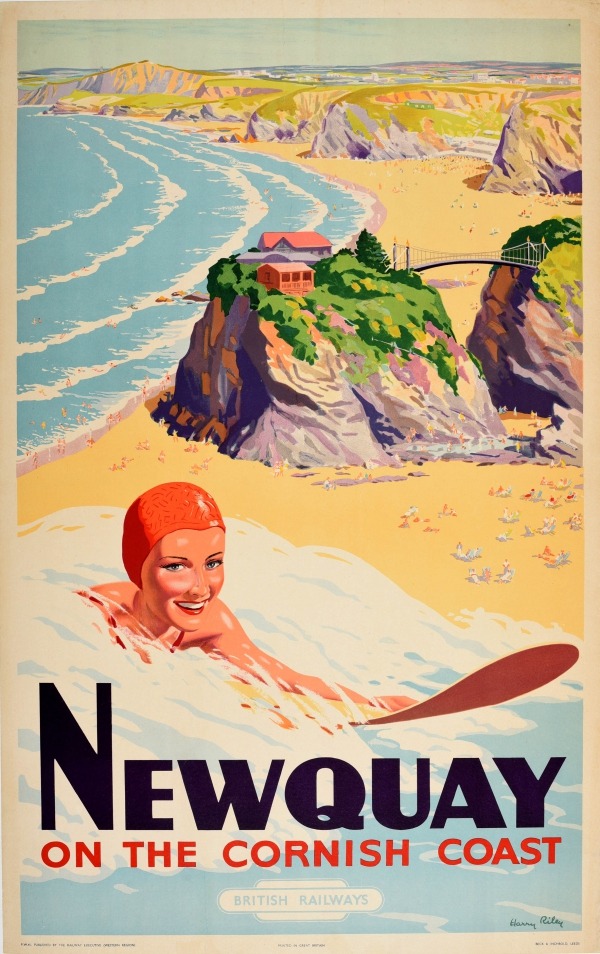
British Railways travel poster for Newquay, a town on the north coast of Cornwall (1948). Artwork by Harry Riley.
#vintage poster#vintage travel poster#1940s#Harry Riley#newquay#cornwall#england#holiday#travel#tourism#beach#british railways#swimming#seaside
88 notes
·
View notes
Note
What do you think of British railways
Shouldn't have been privatized, that was a fucking mistake
173 notes
·
View notes
Text
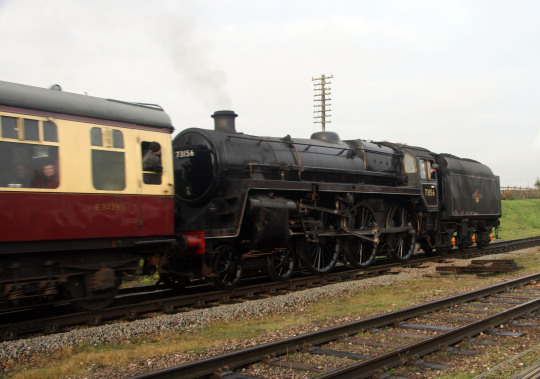
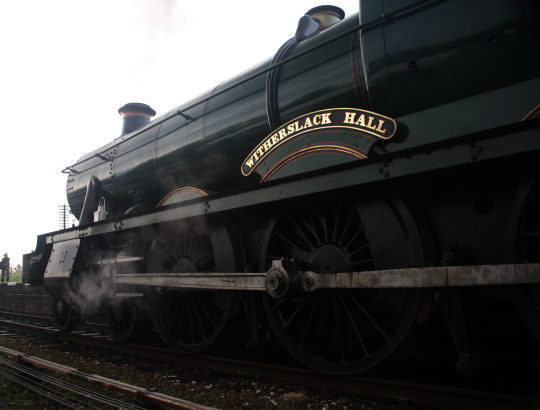

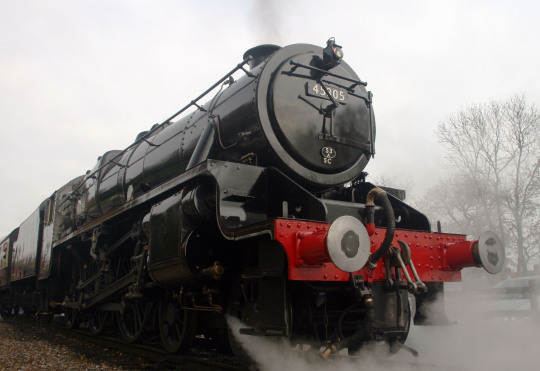





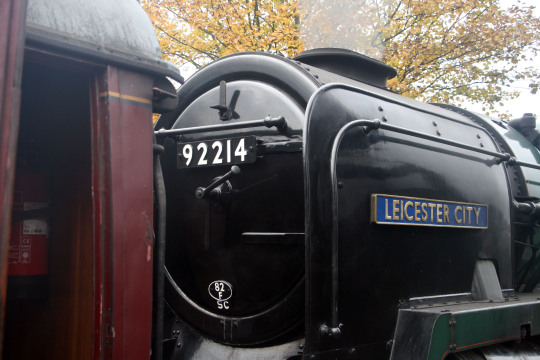
Great Central Railway, Last Hurrah Gala 2019 (Part 1)
#steam locomotive#england#winter#photography#steam engine#steam train#train#engine#locomotive#Great central railway#GCR#LMS#LNER#british railways#smoke#steam#photograph
86 notes
·
View notes
Text

"Camping Coaches provide delightful and inexpensive holidays"
British Railways
1955
#vintage camping#campfire light#british railways#1950s#rail travel#adventure#travel#explore#vintage ads
180 notes
·
View notes
Text
The Destruction of Engine Culture:
Ok, so this is going to be another long, and rambling post. So be warned. And as usual, this is a RWS theory post, so there will be talk of scrap.
That said, let's dive into the destruction of engine culture.
So, I think the first thing to ask is what would be 'engine culture' and how would it affect the railways of Britian (and globally) - and the answer is quite simple: it's the same as human culture. Humans have developed cultures for millennia, and they are often quite similar, and this is hypothesized to be because these cultures had similar things to warn about. Warning about the dangers of flooding, of wild animals, of droughts and fires. Many of the oldest stories are tales told to teach practical lessons. Little Red Riding Hood is as much about stranger danger and the threat wild animals pose as it is a story about a crossdressing wolf. Some scientists believe games like tag and catch were developed by our hunter-gatherer ancestors to teach hand-eye coordination and improve stamina. This is of course very early culture: stories, games and songs passed down from one generation to the next - but that's what we're talking about here. Railways are 220 years old at the oldest possible (and there are surviving engines from this era), so it's an early era of culture for them.
Furthermore, engines would inherit much of their railways' culture, depending on where they are. An engine working in Tsarist Russia would grow up with that culture, whereas an engine in Argentina, or France, or Kenya would grow up with the local cultures. This includes language, music, belief systems and otherwise. So that's the basis of engine culture itself: human culture. Engines learn human language, they sing human songs and they might even take on human beliefs.

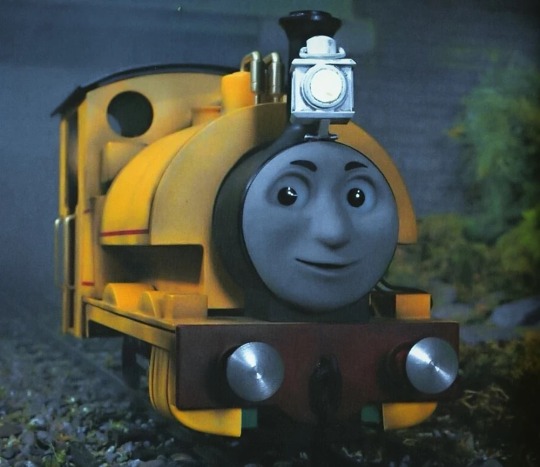
They do, however, have their own beliefs. Lady, for one, with her gold dust and magic, has been used by fanfic authors as an 'engine deity', while Thomas and Friends alluded to Proteus being a deity of some sort, with a magic lamp. These engine 'deities' exist, it seems, as a focal point for engines. Proteus represents the ability to make wishes - something engines really don't have, while Lady represents freedom. She's able to travel great distances on her own, between continents, without needing to pull trains. Does that not sound like the railway version of attaining freedom?
So the engines have 'deities'. I won't call them gods, because that's very likely not what they are, but they are legends told by older engines to younger ones.
The other kind of legends that would really dominate engine culture would be practical moral tales - in the same vein as Little Red Riding Hood being about stranger danger and the threat of wild animals, stories told between engines would be warnings about the trucks, or bad stretches of line, or dangerous weather. But unlike fairy tales, these stories would come from experience. Engine culture is very new, and it's being developed continuously during the Victorian era. Incidents like the Tay Bridge Disaster, or William Huskisson's death, or the Abbots Ripton rail disaster all are quickly turned into stories told by the older engines to teach the new arrivals (of which there are hundreds by the year) about how to run the railway as safely as possible.


The engines also develop games which help them to watch signals, or counter miles, or figure out their location in adverse conditions. These games started as training exercises, but became more fun as young engines made them competitions. They also develop songs of their own, which can tell messages:
"Once an engine when fixed to a train
Was alarmed at a few drops of rain,
So went "puff" from its funnel
Then fled to a tunnel,
And would not come out again."
The message: don't stop in a tunnel.
But the thing is, this post is about the destruction of engine culture, and now that I've explained it, I'm going to explore how it was decimated.
And for that, we start with the Second World War, which saw a complete upheaval of the railways of Britain. The war was especially hard on the railways, and engines were often used around the clock with no rest. This meant that a lot of the newer engines never got to hear these stories before being sent out for weeks at a time, as they never spent any time at a single shed. And even if they were parked up at a shed, everyone was so exhausted they didn't have time to tell tales. And at the end of the war, a lot of the oldest engines were withdrawn, completely worn out. The oldest engines were the ones who told many of the tales, and their loss was the start of a decline.
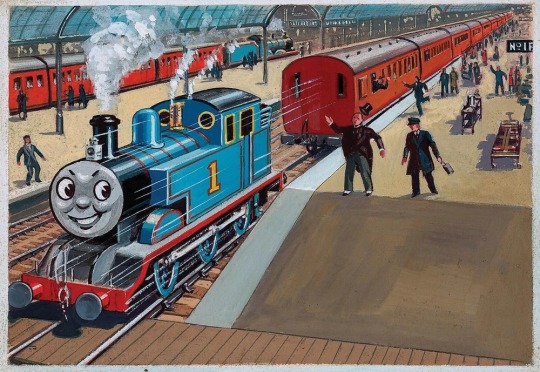

The Railway Series, however, would pick up a lot of the slack from this loss, as many of its earliest stories were in that same moral vein as traditional 'engine culture' stories, focusing on listening to elders, not stopping in tunnels, being patient, gentle with coaches, careful with trucks - it's all there. And I can see that being due to Edward teaching the Reverend many of these stories, in a bid to keep them from vanishing. And he would continue on, joined by other older engines like Skarloey, Rheneas and Toby, as the book series went on. Things like listening to advice and not acting recklessly pop up constantly - especially with Duncan, who Skarloey had to deal with.
It all gets worse when British Railways forms though. And this is where the 'railway rulebook', the attitudes of diesels and the doctrine of BR all come in to play. As the doctrine and official rulebook of British Railways portrays steam engines as inferior, weaker engines, the diesels are indoctrinated into believing it - and thus, they refuse to listen. Take Diesel for example, who believes that diesels can just arrive at a yard and 'improve it'. He is immediately foiled by some jammed breaks - something he may have learnt about from a story or a tale from a steam engine. But he never stopped to listen. And it's the same across the country, across the world in fact. As the successful diesel classes prove themselves to their managers, they are rolled out and steam engines are withdrawn - and with that, so is the culture they were the keepers of.

But this isn't quite the end of this 'engine culture' yet, because one group willing to listen to the steam engines are the 'failures'. Engines like BoCo and Derek would be very willing to listen to the engines that have tales that may just help them. Stories like how to best use sand in a storm, or how to conserve energy over the Settle-Carlisle route. And so even as steam dies, these 'failures' hold their culture, and try their best to preserve it, alongside the preserved engines. The Railway Series does too, such as in 'Stepney the Bluebell Engine', where sanding is explicitly mentioned. Another group that take in this engine culture is the GWR diesel-hydraulics, who grew up with GWR ideology, and thus would have been more willing to listen to their steam ancestors.
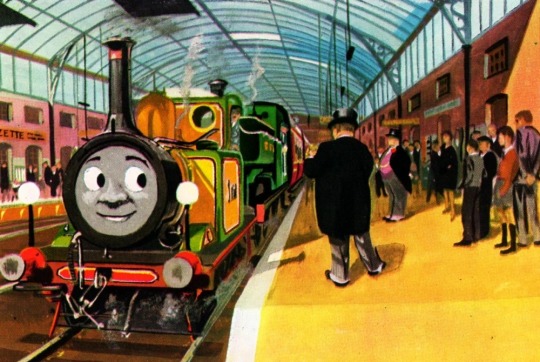
But these 'non-standard' engines were also quickly wiped out. And this leaves only a few pockets of engines who remember the old stories: the preserved engines, and the few Gen-1 diesels who did listen. By the end of the working lives of the Class 40s, the Deltics and the 'Peaks', they are the last engines who remember the old stories from the steam era working on British Railways, and when they are scrapped, the next generation grows up relearning everything.
Because the fact is that these stories held a major purpose, and the destruction of that culture means that every mistake every warned against is suddenly being made again, and again, and again. We notice this in the Railway Series, where Diesel, and Class 40, and D199 and even Bear all make very elementary mistakes that would have been warned against in these cultural stories - like taking care around trucks or looking out for the wind. And it only gets worse as this first generation are scrapped. Engines scramble to a standstill on leaves again, engines get trapped in floods, or lost in storms, or run through signals - and it's because the games, the songs, the stories, everything that would have prevented these accidents is lost.
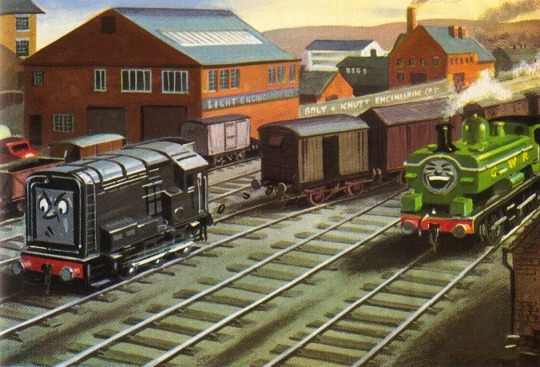
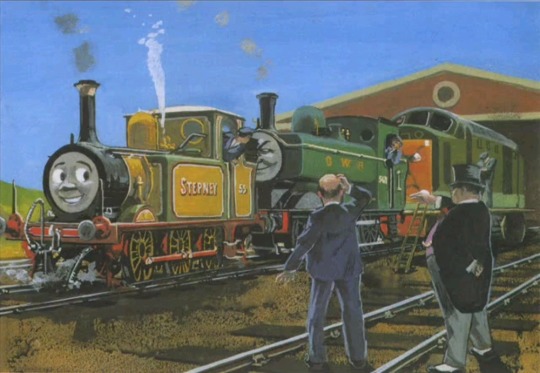
It's not until these diesels reach preservation that they hear the stories remembered by the steam engines, and that's when they realise that... hey, maybe the ancestors were right after all.
The saddest part is that it's not only a global thing, but that it's still very much a problem on modern railways. The loss of 'engine culture' between the 1950s and the 1980s would have a domino effect that would still impact modern railways, as the even newer electric engines and multiple units face the same issues but with no prior knowledge.
The pictures in this post are not mine.
#fanfiction writer#thomas the tank engine#weirdowithaquill#railways#railway series#the railway series#ao3 stuff#very long post#long reads#british rail#british railways#engine culture#ttte lady#ttte proteus#ttte diesel#ttte class 40#ttte stepney#ttte analysis
109 notes
·
View notes
Text

I was commissioned by the LEGO train group LUKR to design their club logo for the year! Finally my digital art and LEGO building have crossed streams :D
It's based on the "cycling lion" emblem used by British Railways in the 50s and 60s.
#LEGO#LEGOtrains#British Railways#Logo design#Commission#Emblem#Rail art#Digital Art#BR#Cycling Lion
26 notes
·
View notes
Text
youtube
The Cinematic shots of Tornado on Top Gear, Season 13 - Episode 1 - Race to the North
#a1 tornado#on the rails#real railway#steam engine#steam engines#British Railways#ttte tornado#Youtube
25 notes
·
View notes
Text

SO...I just realized something. In the offical rws canon the NWR is under BR until 97...which means for a time Edward was the oldest engine in service with British Railways in the world of RWS Canon
#ttte edward#rws#Hazel acknowledges canons existance for once#North Western Railway#british railways
32 notes
·
View notes
Text
Heavily inspired by Pistons&Gears Inc's Traintober post

[1957]
One lone shunting diesel purred slowly into a yard. Trucks lined the sidings, murmuring and chuckling as he approached.
“Good moorrrning…” oozed an oily voice. “Pleased to meet you, Duck.”
The diesel’s eye twitched.
“Is that James? And Henry? And Gordon, too?” Sneered a second, much higher voice. “I am delighted to meet such famous engines.”
Diesel’s jaw hardened, both at the blatant mockery, and the mentions of a certain painfully brightly colored region.
“Hey, that was pretty good! Though I kinda figure Diesel would have a lower tone than that.”
“I don’t have the range for that. I can’t get my voice as low as you can.”
“What are you idiots doing?” Diesel finally lost what little patience he ever had, and rolled up alongside the two shunters - identical to him in every way except face and number.
“We’re practicing our ‘Devious Diesel’ impressions!” The two chorused in their horrible attempts of deep, scheming voices.
It was all Diesel could do not to snap. Was that what they thought of him? How was he the villain in all this?? Utterly ridiculous. It was all that damn pannier tank and his tricks. If not for him, Diesel would still be on Sodor, milling with the famous engines.
“I can’t say I’m familiar.” Diesel lied, trying to sound unimpressed.
“You aren’t familiar with the great works of Wilbert Awdry?” One shunter asked, sounding genuinely surprised.
Diesel tensed again. “I think I’ve heard of a children’s author by that name.” He put emphasis on ‘children’s author’ in an attempt to display his lack of interest in the subject matter.
“Oh. Well, he just introduced an engine based on one of us! He’s this really neat villain character who has this huge rivalry with-”
Diesel growled, and rolled away, having had more than enough of the “conversation”.
#ttte#thomas and friends#railway series#british railways#diesel the devious engine#br class 08#diesel is kind of an idiot#tbh diesel's lies are really just he said she said#some br diesels having an infatuation for the devious diesel character would be fun I think
27 notes
·
View notes
Text

He tried escaping the might of British Railways, so I had to remove his legs…
#train#train pictures#trains#real train stuff#british railways#we shall never let a steam engine escape on our watch#lol
17 notes
·
View notes
Text
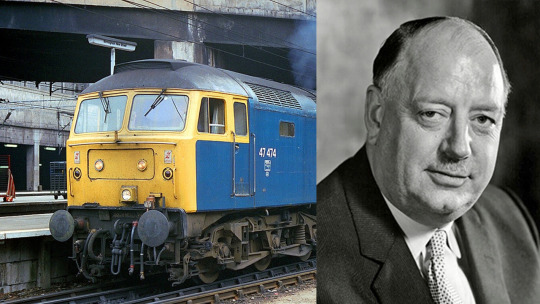
Towards the end of March 1963, Dr Richard Beeching presented his controversial report on the future of Britain’s railways. British Railways (soon to be renamed British Rail) was at that time losing 140 million pounds each year, and Board Chairman, Dr Beeching, was determined to ‘make the railways pay’.
The report found that only one half of the network’s services were financially viable, and accounted for 98 % of total passenger numbers. One quarter of the total traffic began at just 34 stations out of a total of 7 000.
The Beeching report argued that approximately 2 000 unviable stations should close immediately, and 250 train services cease running. Some stations were on small branch lines, but others identified for closure were in Edinburgh, Glasgow and Liverpool. The report called for major reductions in services to the Scottish Highlands, Wales, and the West of England. Dr Beeching told reporters that he anticipated the first closures would take place within months, that 70 000 jobs would be lost, and metropolitan fares in London would jump by at least 10 %.
Officially, the Conservative government welcomed the report, but not everyone was happy. Mark Woodnutt, Conservative MP for the Isle of Wight, threatened to resign over the proposed loss of the island’s railway.
The chairman of the National Council on Inland Transport, Labour Peer Baron Stonham, said;
“…Far from gearing the railways to the needs of the 1960s, it will in some areas reduce public transport to a lower level than in the horse age…”
There was a change in government in 1964, with Labour coming to power for the first time since 1951. After producing a second report in 1965, Beeching resigned over differences with the new Wilson government. Despite widespread protests against line and station closures, and hopes that the new government might see things differently, cuts outlined in Beeching’s original report were enacted. According to the BBC, a total of 2128 stations were closed, and 67 700 jobs were lost.
youtube
In the mid-1990s, David Croft produced and co-wrote a sitcom set in a small village station facing closure under the 'Beeching Axe', featuring Paul Shane, Su Pollard, Jeffrey Holland, several more familiar faces from You Rang M'Lord, and Stephen Lewis as the unsmiling signalman. The theme, sung by Su Pollard, adapted lyrics from Will Hay's Oh, Mr Porter!, previously a music hall standard.
Oh, Dr Beeching what have you done?
There once were lots of trains to catch, but soon there will be none,
I'll have to buy a bike, 'cos I can't afford a car,
Oh, Dr Beeching what a naughty man you are!
#british railways#public transport#railways#social history#dr beeching#uk government#working class history#uk politics#social justice#society#modern history#Youtube
42 notes
·
View notes
Text
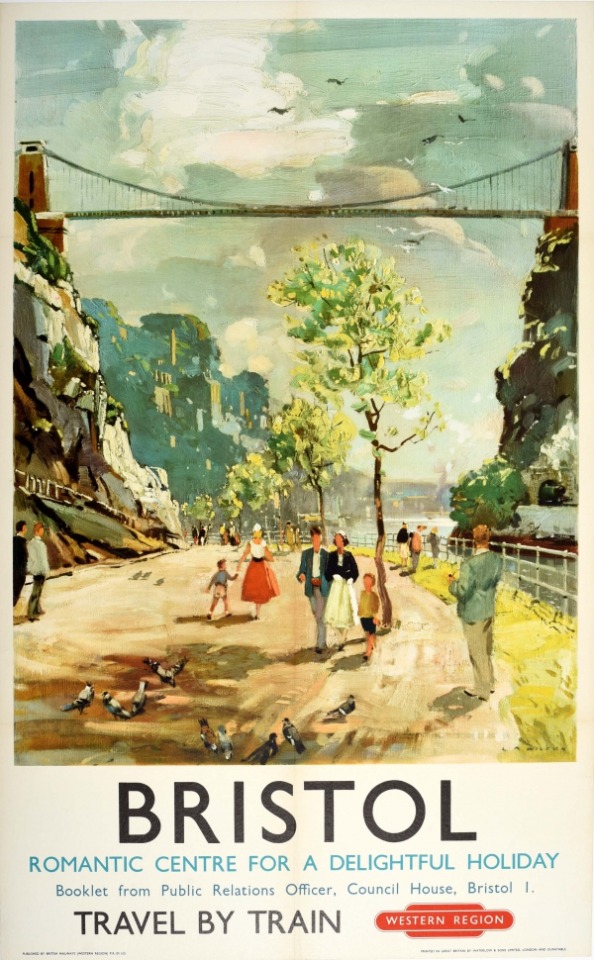
'Bristol - romantic centre for a delightful holiday'
British Railways Western Region travel poster for Bristol (c. 1950). Artwork by Leslie Arthur Wilcox.
#vintage poster#vintage travel poster#1950s#bristol#Leslie Arthur Wilcox#british railways#britain#holiday#travel#tourism#romantic
104 notes
·
View notes
Text
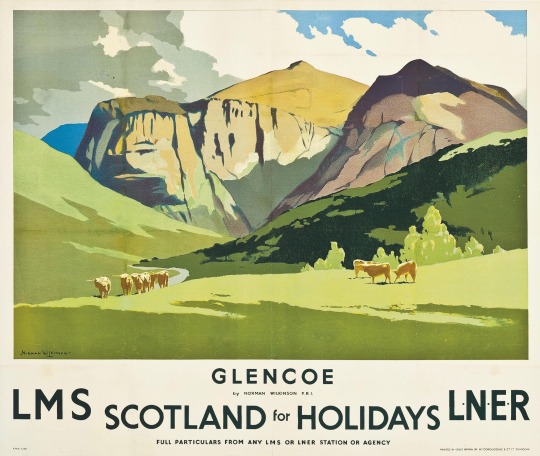
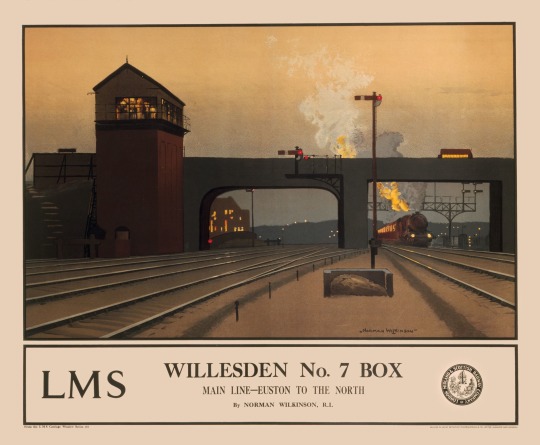

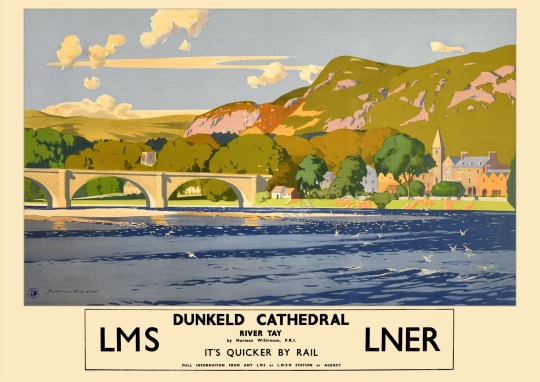


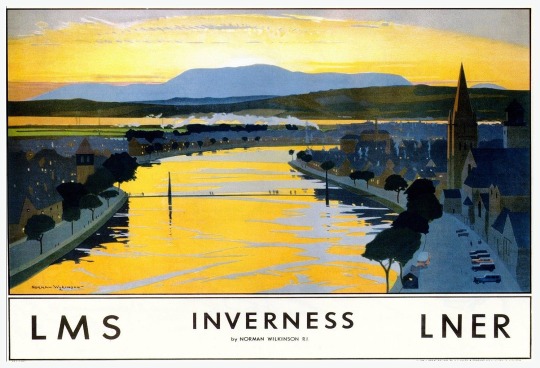
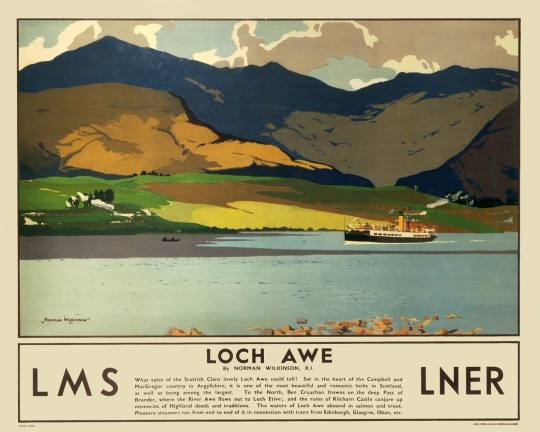

Norman Wilkinson (1878–1971)
8 notes
·
View notes
Text

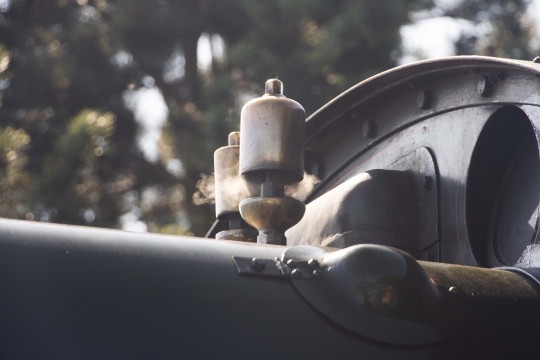
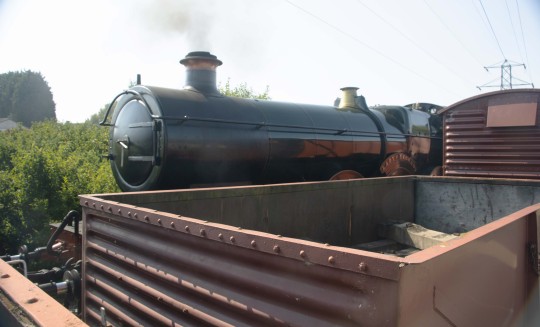



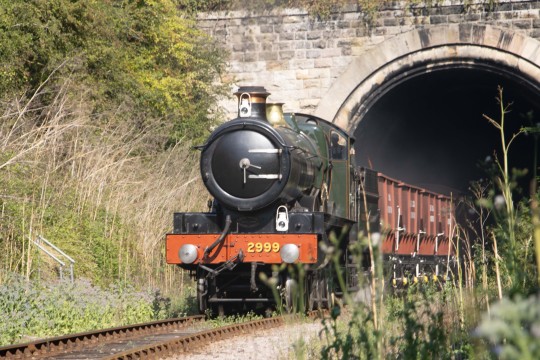


Lady of Legend at the Nene Valley Railway (Part 4) 2023
#steam locomotive#england#photography#steam engine#steam train#train#engine#locomotive#LNER#british railways#smoke#steam#photograph#GWR#nene valley railway#summer
24 notes
·
View notes
Text

Pioneer class AL1 electric locomotive No E3001 passes the Jodrell Bank telescope circa 1960. There's something very sci-fi about the appearance of the first-generation West Coast electrics. It's the raked-back cab fronts and electric blue livery that does it.
#trains#electric train#BR class 81#West Coast Main Line#british railways#jodrell bank#Lovell Telescope
5 notes
·
View notes